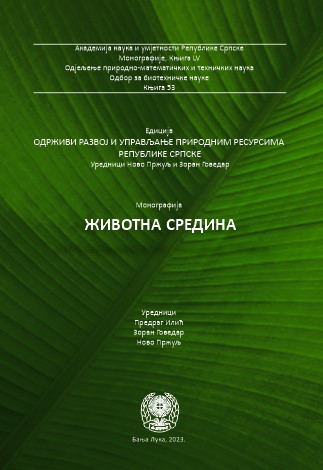Soil in Terms of Industrialization and Mining - Consequences and Soil Recovery
DOI:
https://doi.org/10.7251/EORU2309323MKeywords:
Soil degradation and destruction, exploitation of mineral raw, materials, technogenic soil, reclamation, plant cover, organic matter, monitoringAbstract
The land resource of Republic of Srpska is subject to damage impact caused by four basic groups of soil process: microbiological contamination, chemical contamination, anthropogenic degradation, and physical destruction or soil disappearance. The most common causes of soil contamination are heavy metals, sulphur solutions, organic pollutants, acid rains, pesticides, mineral fertilizers, radioactive radiation, mineral raw material deposits, various waste dump sites and other. Degradation of soil is reflected in the process of land sliding (erosion) and degradation of soil within the soil profile itself (in situ). Destruction of soil is the heaviest form of soil damage and loss. Surface mining of mineral raw materials appears to have the biggest impact resulting in soil loss. Temporary soil loss is usually defined by surface mining of mineral raw materials. Mining activities have most noticeable impacts on environment (soil, water, air, organisms). Technogenic soils are formed by overburden and interbred disposal and development of mineral raw material mining activities. Soil reclamation and other preventive environmental measures are to be taken to decrease adverse impact of mining activities and improve reclamation of degraded surfaces. Reclamation process covers approximately 10% of technogenic soil in Republic of Srpska at three coal basin locations (Gacko, Ugljevik and Stanari). Technogenic soil falls under VII class and I subclass of automorphic soils. Two types of soil belong to this subclass: Deposol and Rekultisol. Deposol represents interburden material moved to storage area before starting reclamation process. Rekultisol defines technogenic soil in different level and intensity of reclamation. The fertility of deposol, same as most other types of technogenic soil is generally poor. The basic goal of technogenic soil reclamation is surface stabilization and improvement of soil fertility. One of the most important properties of soil in the process of reclamation is organic matter content. Regular monitoring is important for collecting information on state of soils, application of reclamation measures, biogenic and other elements content in crop residue at reclaimed surfaces at the locations nearby mining and industrial utilities.
